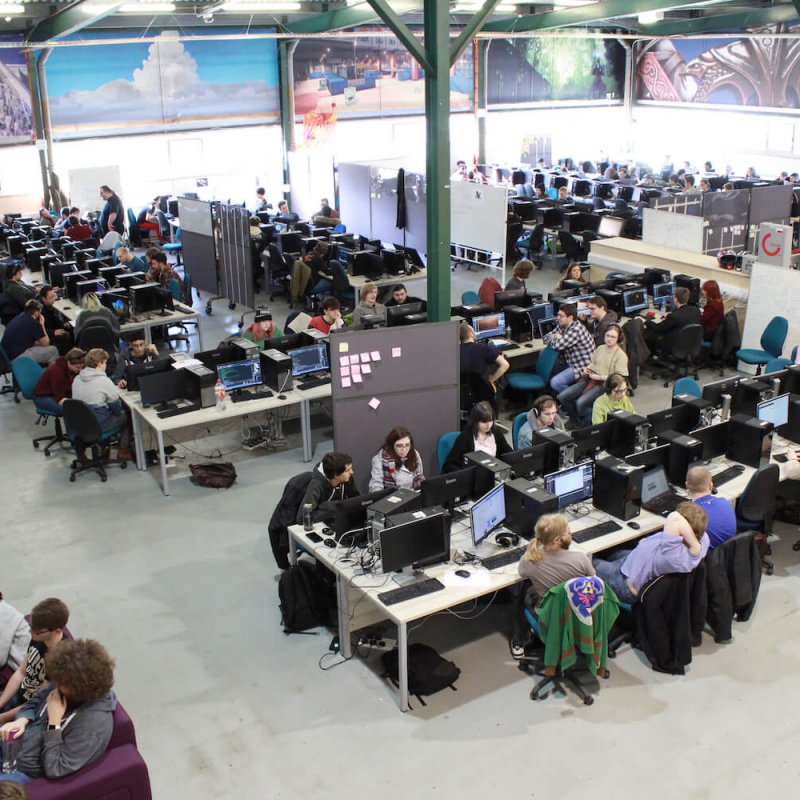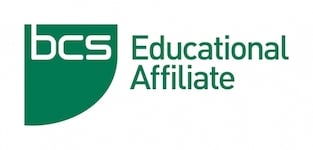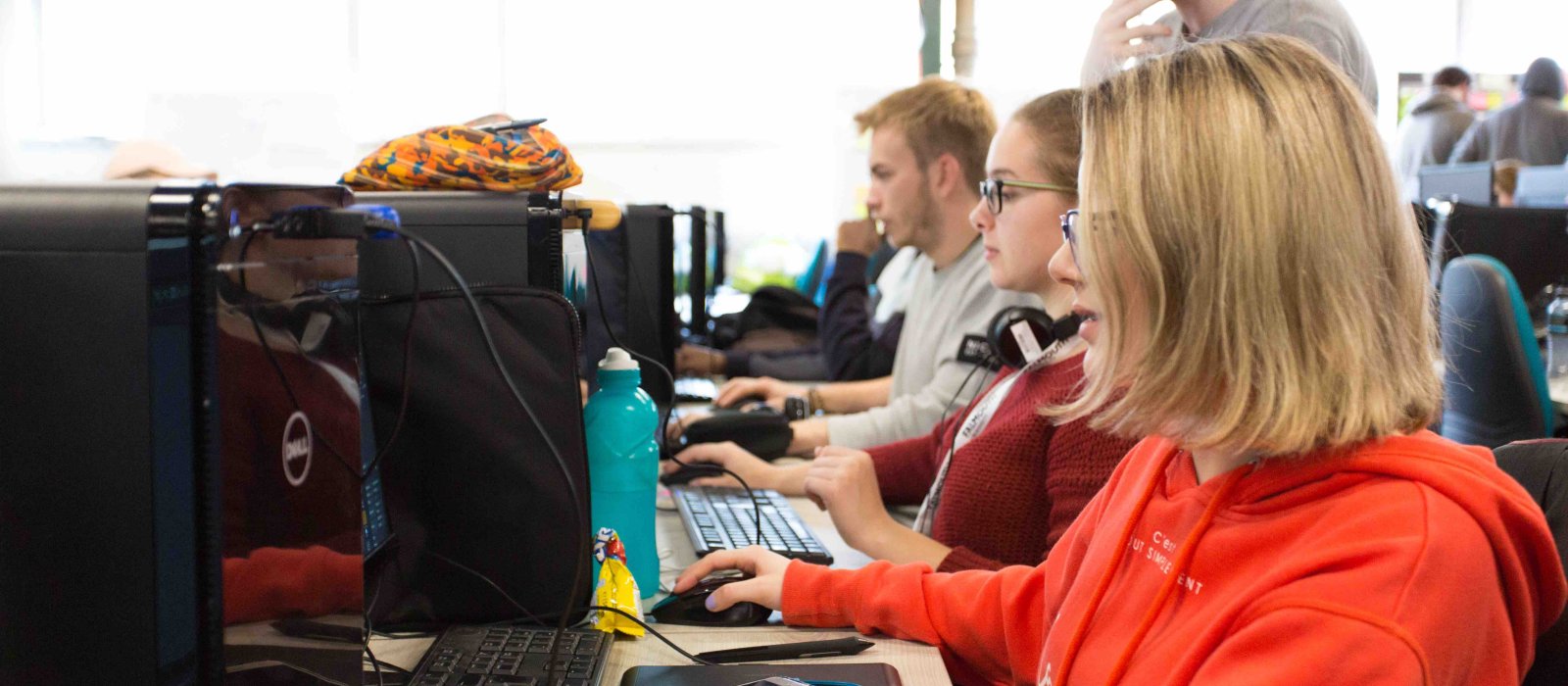Course overview
This course is new for entry year 2025.
Use your talents for creative problem solving and lateral thinking to excel on this BSc Software Engineering degree: where software engineering meets experience design, to improve people’s lives through technology.
This new Software Engineering degree from our award-winning and internationally acclaimed Games Academy is designed for people who through playfulness and ingenuity like to disassemble products, technology and ideas, to rebuild and them to suit modern user needs.
With a strong focus on in-demand industry skills such as interdisciplinary working, experience of cutting-edge development operations, software architecture, novel programming tools and computing – alongside solid foundations in system design and architecture– this Software Engineering degree is designed with your future career in mind.
Graduates from this course will be confident, resourceful software engineers with the skills and professional competencies needed to operate in the industry.
Why study this course at Falmouth?
- Develop advanced knowledge of software engineering and an understanding of the principles and theories associated with computing - two in-demand skills for industry
- Gain a deep understanding of core principles, with a particular emphasis on cutting-edge development operations and novel programming tools
- Gain a firm foundation in computer programming and software development practices, with an emphasis on agile methodologies and creative approaches to problem-solving
- Work using user-centred insights: incorporating this in analysis, design, implementation, and evaluation to create digital products and services that meet real market needs and work for real stakeholders
- Be part of a product team that collaborates across disciplines, on projects with real business potential for your final year Major Collaboration
Similar courses
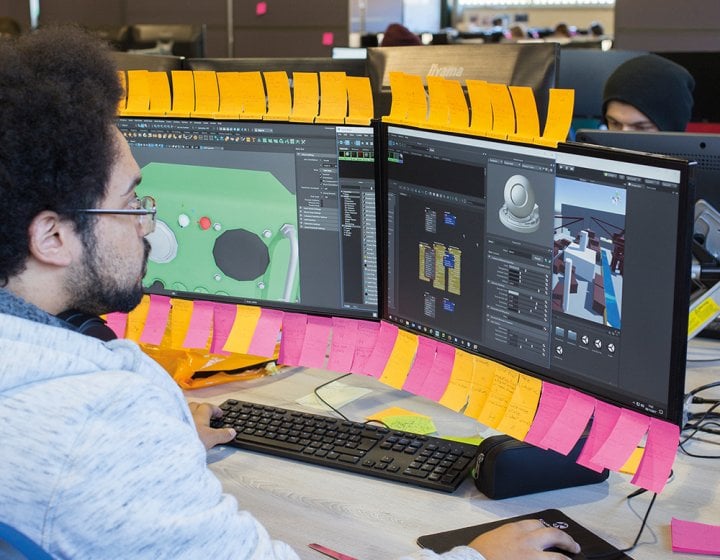
Game Animation BA(Hons)
Gain experience of working to a real-time animation pipeline and graduate with a rich portfolio of w...
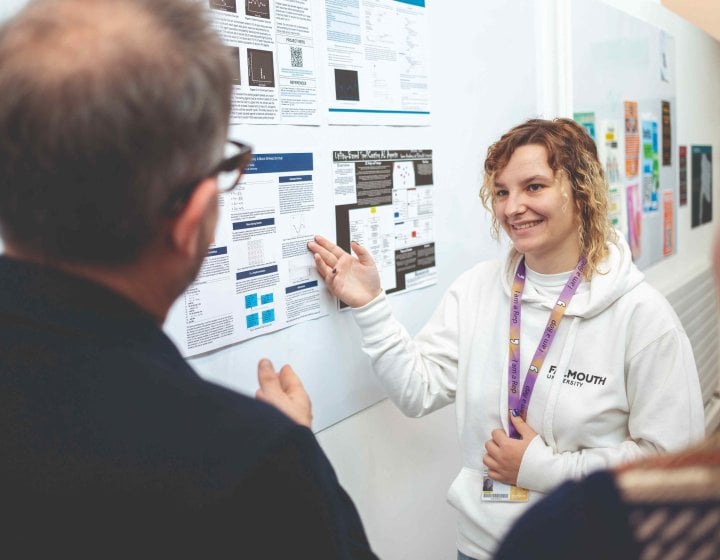
Computer Science BSc(Hons)
New immersive realities, data-rich interactions, automations and ever-more ubiquitous systems are sh...
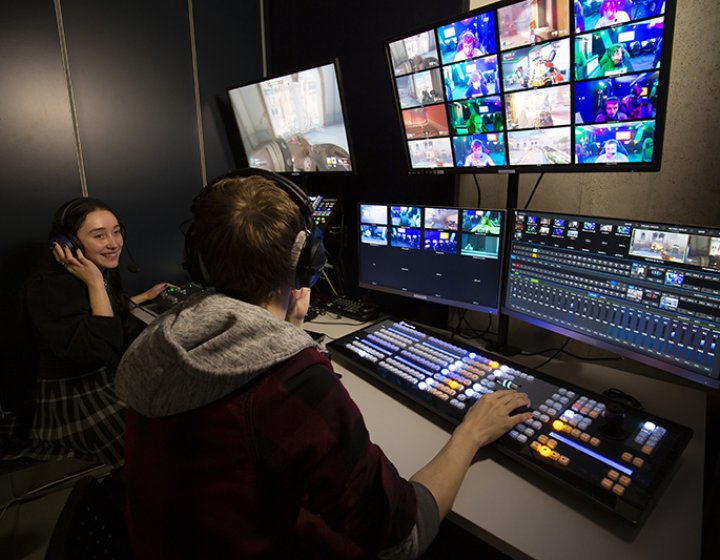
Esports & Livestreaming BA(Hons)
Immerse yourself in Esports culture on this degree, which offers a unique opportunity to be at the f...
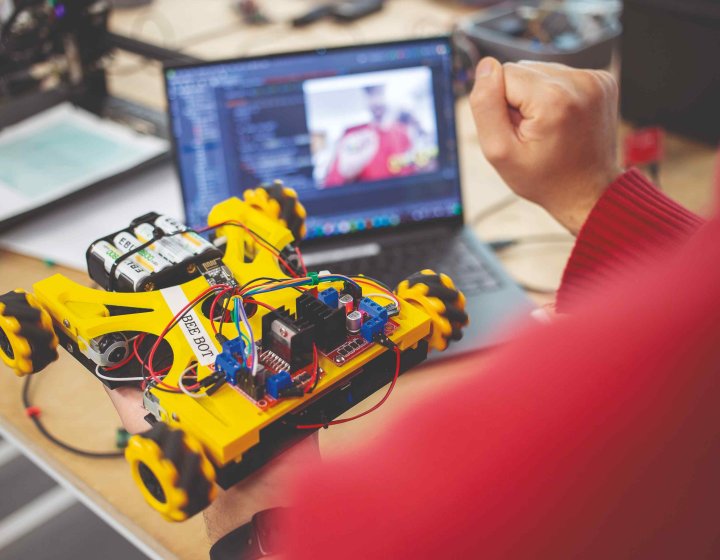
Robotics BSc(Hons)
Explore the world of artificial intelligence and create interactive robots that respond to the chall...
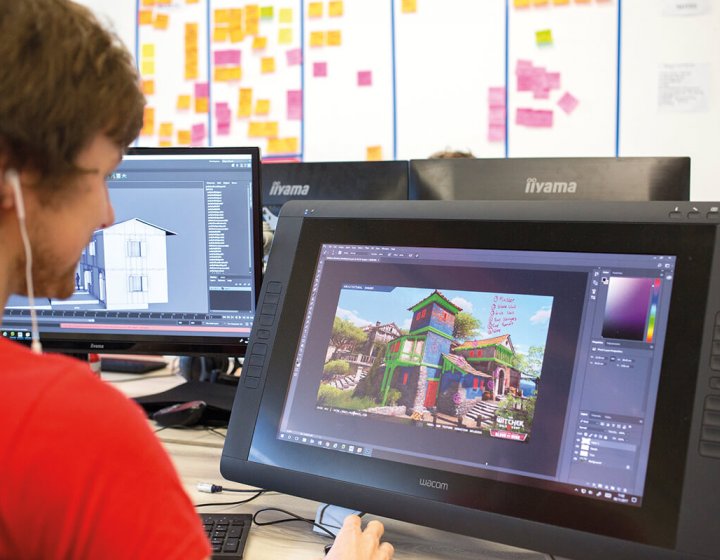
Game Development BA(Hons)
Join a community of people who have a passion for games. From day one, you’ll work as you would wi...

Game Art BA(Hons)
Work in multi-skilled collaborative teams and graduate as a confident, industry-ready game artist. ...
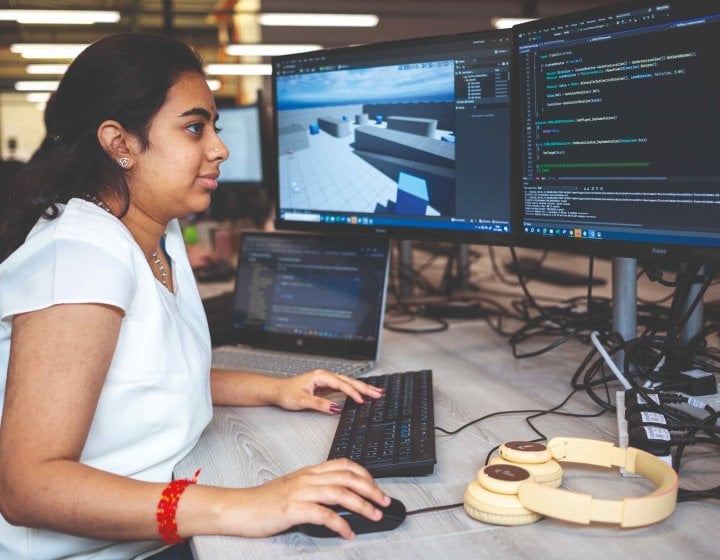
Computing for Games BSc(Hons)
Learn how to shape the games of the future by studying game development through the lens of computer...



